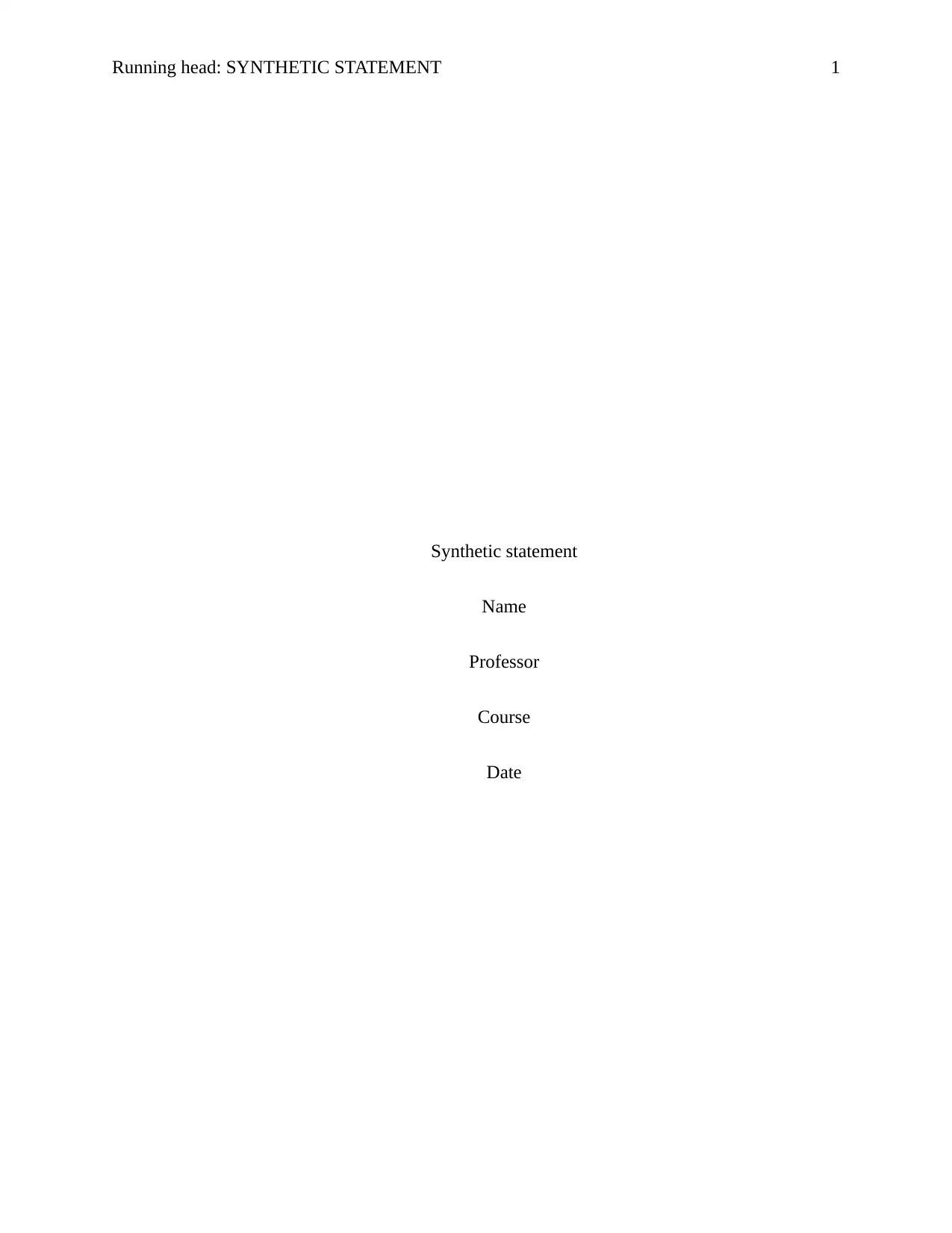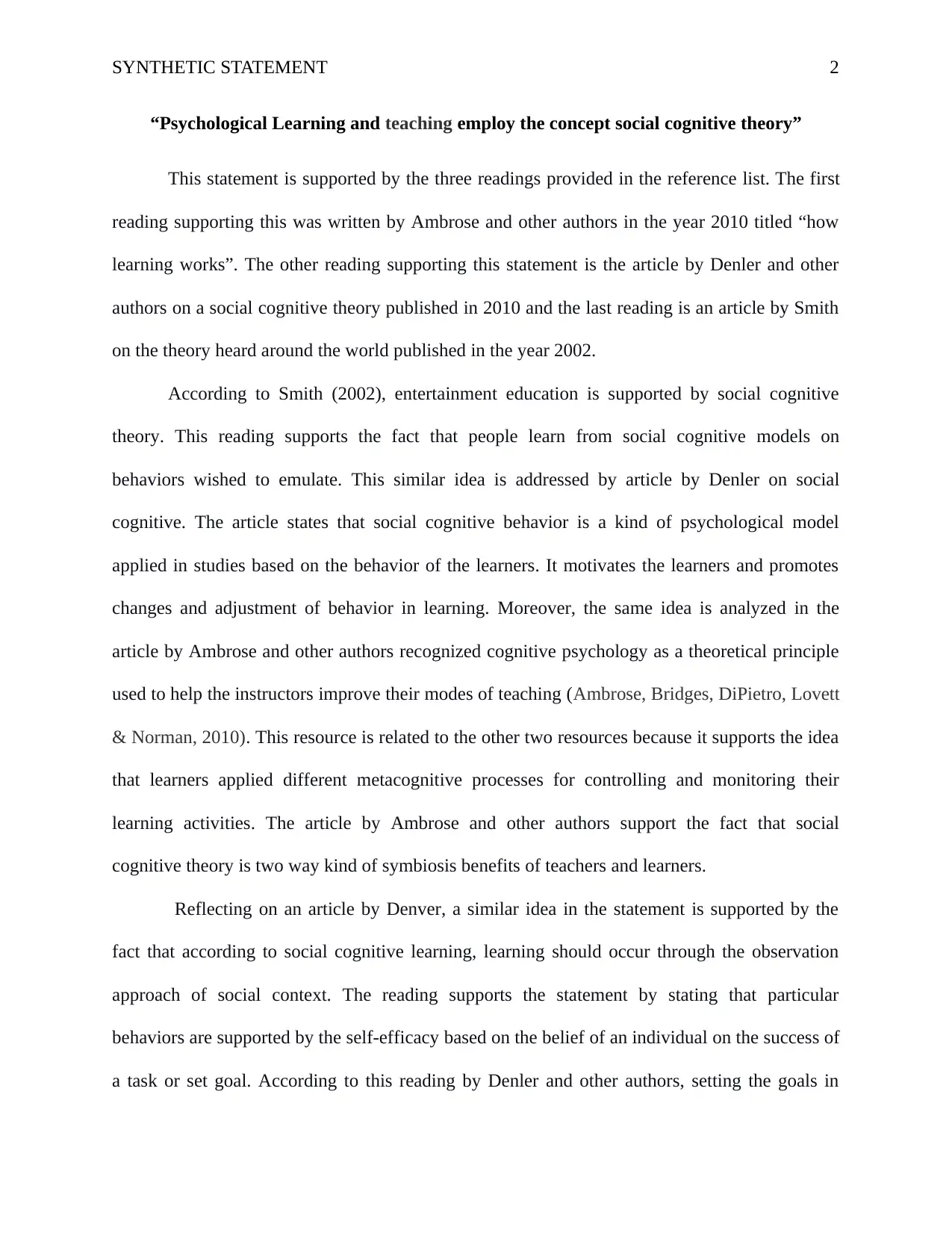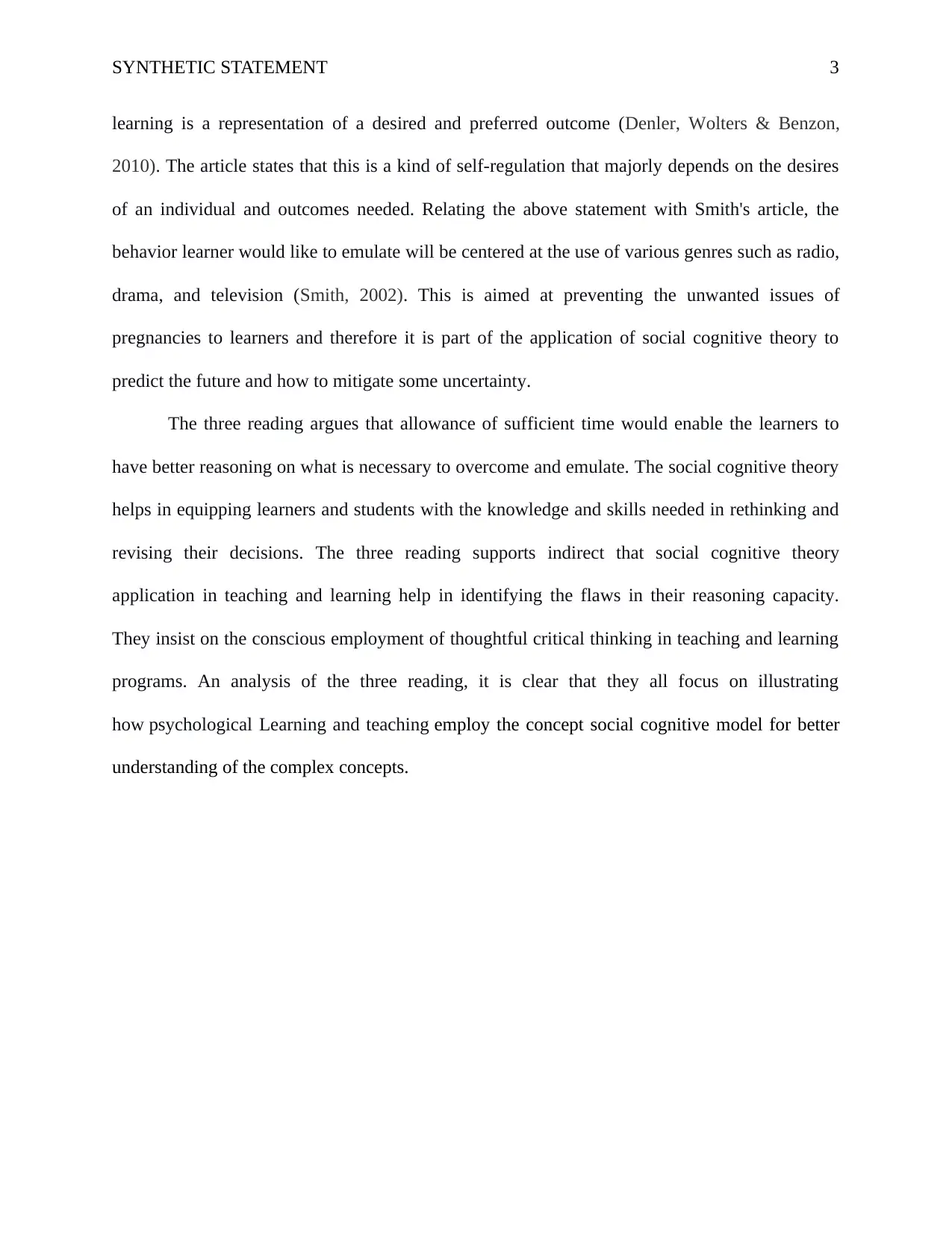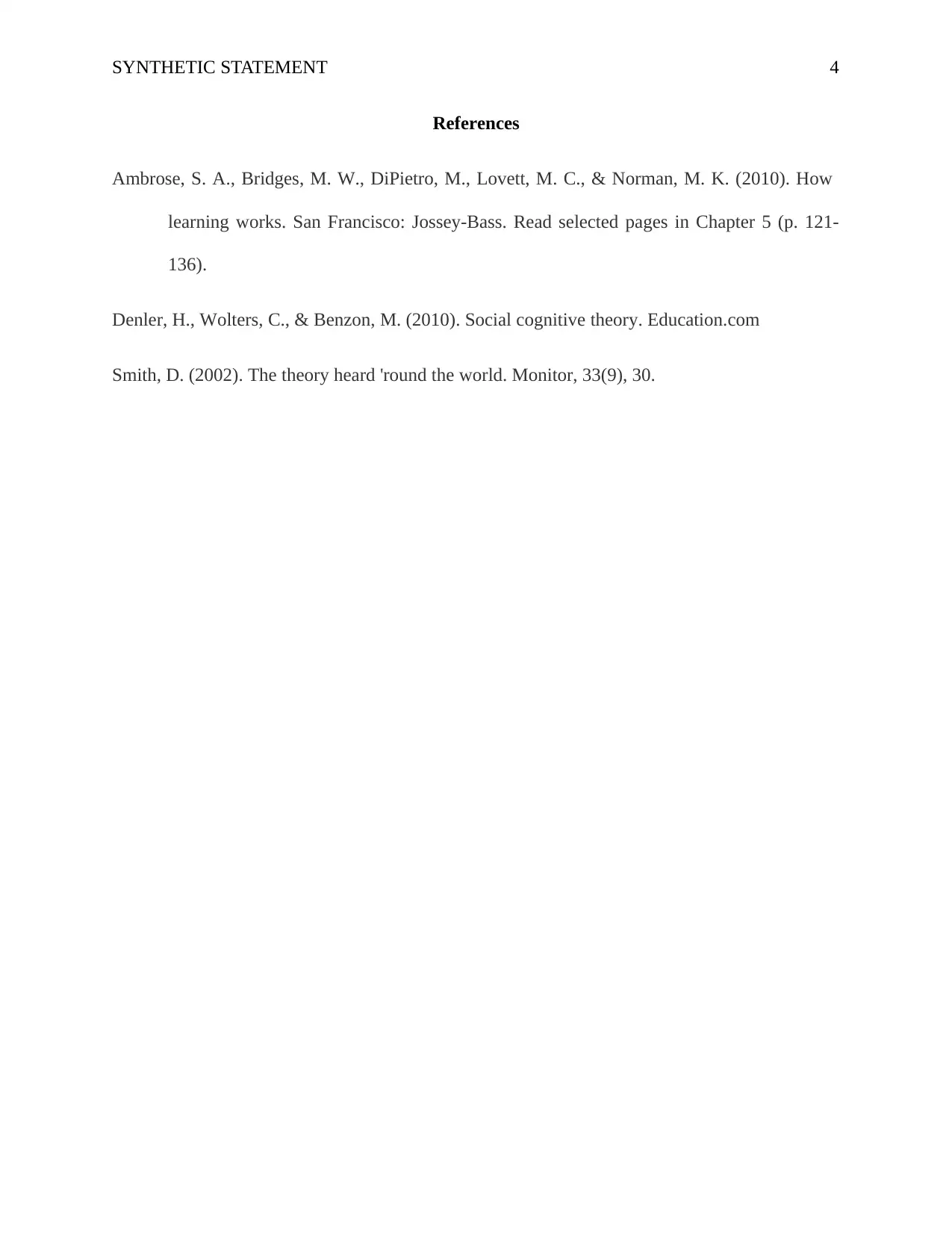Analyzing Social Cognitive Theory in Psychological Learning
VerifiedAdded on 2022/08/23
|4
|710
|17
Essay
AI Summary
This essay examines the application of social cognitive theory in psychological learning and teaching. The essay analyzes the statement "Psychological Learning and teaching employ the concept social cognitive theory" and supports it using three provided readings: Ambrose et al. (2010), Denler et al. (2010), and Smith (2002). The essay highlights how social cognitive theory, as supported by these readings, emphasizes observational learning, self-efficacy, and the use of cognitive models to improve teaching methods and student outcomes. It explores the impact of social cognitive theory on student behavior, motivation, and the development of critical thinking skills. The analysis demonstrates how the theory provides a framework for understanding how individuals learn from observing others and how this influences their own behaviors and learning processes. The essay also discusses how these theories can be applied in various educational settings, including the use of entertainment education and the importance of goal setting and self-regulation in learning.
1 out of 4











![[object Object]](/_next/static/media/star-bottom.7253800d.svg)